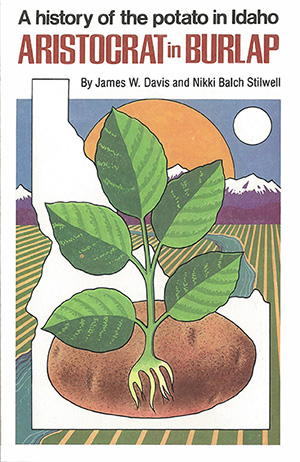At the same time that a rapidly changing market was demanding adaptation in Idaho, potato growers in other parts of the United States were looking enviously at the premium price that Idaho® potatoes commanded. They began experimenting with growing acreages of Russet potatoes in their own production areas with varying degrees of success.
In the beginning, Idaho had a virtual exclusive on the Russet Burbank potato with its fine cooking qualities and reputation for quality, only to find by the early '50s some production was taking place in Maine, Colorado, Michigan, Wisconsin, Washington, and Oregon.
With other sources of russet potatoes available, the identification of Idaho-grown potatoes became a problem. Much of the crop was still leaving the state in 100-pound bags, which meant that they could be repacked in the market into consumer-size containers or could be sold from bulk displays in retail produce departments. Consumers could not tell whether they were getting Idaho-grown Russets or those which came from another producing area.
Idaho required that the Idaho trademark seal be included on every container, but with the premium price genuine Idaho® potatoes would bring, the practices of blending and mislabeling were widespread. Some Idaho shippers felt that consumer packages packed in Idaho and labeled as Idaho® potatoes were the answer to the misrepresentation problem.
Another idea that had a great many advocates was that of stamping individual potatoes with the words "Grown in Idaho." To many this seemed like the ideal solution to the problem; however, it proved to be unsolvable from a technical viewpoint. The effort to make stamping work represented an investment in time and effort by many shippers that in the end had to be abandoned.
Another devastating change was yet to affect the shipping industry. As processing firms grew larger and more influential and controlled more of the production of potatoes in Idaho, the dehydrators, in particular, found it to their advantage to get into the fresh-shipping business as well. The Simplot Company had a large fresh-shipping business before starting its processing plants, but with most processors, the converse was true. For example, the H. T. French Company, of mustard fame, installed a fresh-shipping department to complement their instant mashed-potato processing operation at Shelley. Both were later sold to the Pillsbury Co. Sunspiced division of Basic Vegetable Corporation in Blackfoot also found the fresh-shipping business advantageous to their dehydration operation.

